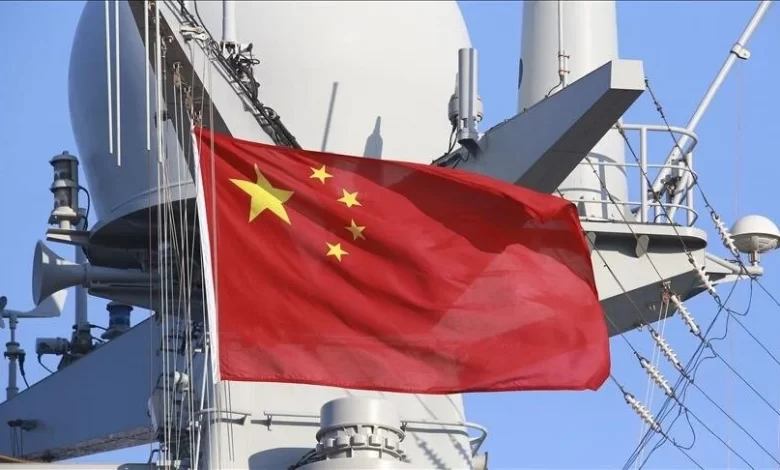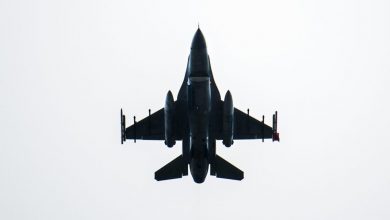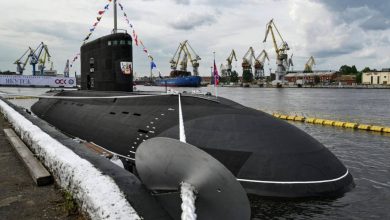Report: NATO further extends presence in Asia-Pacific

Japanese Foreign Minister Yoshimasa Hayashi recently confirmed in an interview with the US media that the Kishida government is currently in talks to open a NATO liaison office in Tokyo.
According to the Japanese media, the liaison office scheduled to be put into service by the end of 2024 will be the first NATO liaison site in Asia, which is intended for regular consultations with NATO’s key regional partners including Japan, ROK, Australia and New Zealand, as well as coordination with other Asian countries.
NATO’s ambition to encroach on Asia-Pacific has been laid bare in recent years. In the NATO 2030 initiative, NATO identified Australia, Japan, ROK and New Zealand as its four partner countries, and explicitly proposed to expand its influence from Europe to the Asia-Pacific region and even to the whole world. In 2022, these four Asia-Pacific countries were first invited to attend the NATO foreign ministers’ meeting and summit meeting, and ROK and Japan successively joined the NATO Cooperative Cyber Defence Centre of Excellence (CCDCOE). In addition, some NATO countries have strengthened military cooperation with Asia-Pacific countries and frequently conducted joint military exercises in the region to hype tensions. In January 2023, NATO Secretary General Jens Stoltenberg visited Japan and ROK and alleged that the alliance must work more closely with partners in the region to cope with global threats and challenges.
As a regional military alliance treaty organization mainly composed of North American and European countries, why does NATO frequently demonstrate its presence in the Asia-Pacific?
NATO is a product of the Cold War. However, this organization did not collapse but expanded continuously after the end of the Cold War. In recent years, NATO has increasingly radiated its influence to the Asia-Pacific for the sake of its so-called globalization development goal, in an attempt to drag Japan, the ROK and other Asia-Pacific countries in by playing up security anxieties. Meanwhile, the expansion of NATO in Asia-Pacific largely works in concert with the strategic layout of the US. Since Biden took office, the US had been patching together small cliques by wooing some Asia-Pacific countries and persistently deepening the so-called “Indo-Pacific strategy” in the name of promoting regional cooperation. From solidifying the Five Eyes alliance and peddling the QUAD to cobbling together the AUKUS and tightening the bilateral military alliance, the US is trying to copy the NATO model to the Asia-Pacific and build the so-called Indo-Pacific version of NATO to safeguard its global hegemony.
Under the laborious inveiglement of the US, some of its Asia-Pacific allies seek to take the opportunity of NATO’s involvement in this region to expand their own military power and enhance their discourse in regional and global affairs through a closer partnership with this organization. As the vanguard of NATO, Japan also fantasizes to gain recognition of its great power identity and reshape its status as a military and political powerhouse in Asia by relying on NATO and the US behind it.
Over the years, it has been noticed by all the people in Asia-Pacific and the world that NATO led by the US has wantonly waged wars against sovereign countries and created conflicts and turmoil around the world time after time, which violated international law and basic norms governing international relations and devastatingly undermined world peace and stability. While the Ukraine crisis triggered by the eastward expansion of NATO is still fermenting, this organization further attempts to create new turbulence in the Asia-Pacific. The NATO 2022 Strategic Concept document straightly deemed Russia as “the most significant and direct threat” and first named China as a “systemic challenge” to the alliance. This typical Cold War mentality runs counter to the mainstream tendency of peace and development globally. As to the plot of the US and NATO to divert disasters eastward, the vast majority of Asia-Pacific countries have clearly discerned and firmly said no. Several regional allies of the US should also figure out that beggar-thy-neighbor policies will only degrade their security situation and that setting the cat among the pigeons will inevitably set fire to themselves.





